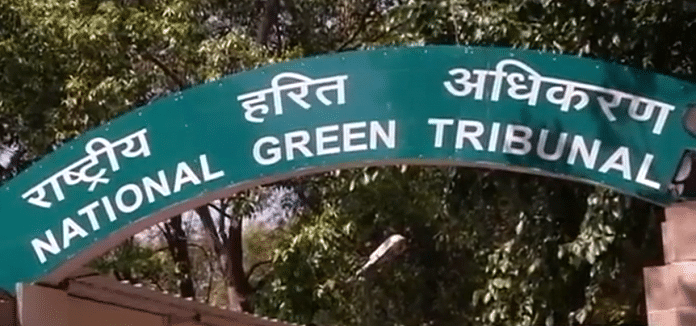Some recent issues that have caused greater friction between the Centre and the NGT include stubble burning and the cleaning of the river Ganga.
New Delhi: In what is perhaps an indication of the government’s inclination to thin out the National Green Tribunal (NGT), nearly half of the sanctioned strength of the environment court is currently vacant.
At present, nearly half the NGT’s total sanctioned strength of 182 is vacant and this is said to be affecting its functioning.
Last week, Justice U.D. Salve was sworn in as acting chairperson for the principal bench in New Delhi after former chairperson Justice Swatanter Kumar retired.
Salve was one of the five judicial members of the tribunal but his appointment as acting chairperson has further reduced its strength.
The vacancies are, some legal circles suspect, the outcome of the constant tussle between the Centre and the tribunal over key environmental issues, including cleaning the Ganga and crop stubble burning.
The NGT had pulled up the Centre for failing to bring about a consensus between Delhi’s neighbouring states on curbing stubble burning. The ministry of water resources has also been on the receiving end on cases related to cleaning up of the Ganga.
Earlier this year, the NGT’s ban on diesel vehicles older than 10 years had met with severe opposition from the government.
The tribunal has a sanctioned strength of 10 judicial members for its principal bench and four zonal benches across the country. The eastern, western, central and southern benches of the tribunal have been sitting with just one judicial member each for over a year.
In addition, eight posts of experts out of 10 are currently vacant. There are 81 other posts that are yet to be filled.
The government’s recent move amending the qualifications of NGT officials has only added to the concern about the vacant posts.
In July, the Finance Act, 2017 was amended to change appointment procedures for chairpersons and members of the numerous tribunals, including the NGT.
Earlier, the NGT chairperson had to either be a judge of the Supreme Court, chief justice of any high court or must be qualified to be one.
The new law allows any judicial or expert member of the tribunal with at least three years’ experience or a person of “ability, integrity and standing, and having special knowledge of, and professional experience of not less than twenty-five years in law including five years’ practical experience in the field of environment and forests” to be appointed as chairperson.
The term of office of NGT officials has also been reduced to three years from five.
A committee was set up by the Union environment ministry in August to select officials based on the new criteria. The committee is yet to make even a single recommendation.







Consesus is for the mature minds, suppression for the deprived.